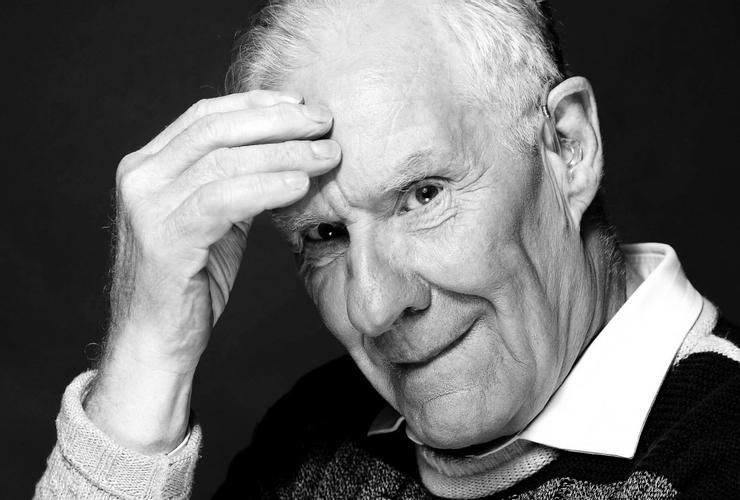Zapp article: Curiosity can kill a relationship: Talking about truth and love
Originally published in Philosophy New Media
There is a scene in " Sherlock ": Watson's wife, Mary, intends to explain to Watson her background as a killer, and immediately gives Watson the USB drive at his disposal. Watson thought about it and asked, "Are you willing to be my John Watson's wife?" After Mary nodded in agreement, Watson immediately threw the USB flash drive into the fire. From the moment of falling in love to the present (when Watson held the USB flash drive), Watson established a cognition of what kind of family Mary was through his daily interaction with Mary, and even fell in love with Mary based on that cognition. However, what the USB drive contained was the earth shovel that knocked down his knowledge of Mary. Watson knew that as long as he saw it, Mary was not the Mary he knew.

As a form of truth presentation, secrets can enhance mutual understanding, but also come with the risk of rejection. Revealing secrets can elevate a relationship because love is incomplete at first and needs to be constructed. At the same time, shaking out your own secrets, if not accepted by the other party, can destroy a relationship, because the truth often has unexpected qualities. Badiou believes that love and truth are two sides of one body, and both involve creation and action. If you know the truth, you will know love, and you will understand how Watson's attitude towards Mary's secret interprets Badiou's belief that one should be cautious before facing the truth .
Love is both creation and rupture
Truth is a creation ; so is love. The former opens up new cognitions, while the latter opens up new life trajectories and new cognitions about each other. Every creation begins with an event. Events are often both the driving force for changing reality and the quality of their effects that cannot be predicted rationally. We cannot foresee where this trajectory leads. Badiou thus sees truth in love. Before love comes, I don’t know how much time has passed until the person’s heart is moved, overturning the old framework of looking at both parties, and the life trajectory of the person concerned has changed since then. Its coming is always noticed after love has happened. In other words, love cannot be captured through causality, but only retrospectively. The expression is as follows: I don't love you because I find a reason, but because I love you, I find a reason to love you. If it can be predicted by causality, it can be grasped by reason, and it will lose the eventuality.
Love and truth are also ruptures with the past , and this is manifested in action . A person's actions and decisions are influenced by the cognitive framework of things and self, and the cognitive framework also constitutes the element of "I". I think things are xyz, so I'll act accordingly. The truth is the event. The emergence of truth overturns the old order and cognition, in exchange for a change in action. Those who accept the truth abandon the old cognitive framework, which means that they are no longer guided by the old framework. In love, the moment when you notice your heartbeat, it is the person who walks out of the old cognitive context (including the relationship with yourself or the other party). Because of my heartbeat, I no longer regard each other as a stranger, and the way of getting along will adjust accordingly.
I will always love you subtext
To be moved by a person is how the truth emerges. With this moment of heartbeat, I will have a new understanding of a stranger later, and regard the other person as half of myself. The truth of love is nothing more than the pursuit of integrated love, the pursuit of coherence with another person by opening a relationship, and escape from loneliness. Without the pioneering power of truth, the pursuit of coherence with another person cannot be said. The truth contains new elements, which loosen the firm existing structure of reality and create a space with alternative possibilities. That created space is not complete from the start, but constructed by action.

The truth is instantly revealed, as if a student asked the right question, evoking other people to see things from a new perspective, but the question is not enough to transform into an orderly exchange of ideas and people, at most it only constitutes an opportunity for new propositions. Half of the truth emerges unpredictably, and the other half needs to be constructed according to the potential trajectory of the truth by means of inquiry . It is as if the author died in the middle of writing the story, and then someone else had to take over. , and continue writing according to the setting of the story.
Badiou calls this the anticipatory hypothesis 1 . Assume the expected appearance of the truth first, outline the outline of the truth step by step, polish the details, and then complete it (totalize) 2 . For example, when calculating the perimeter of an irregular shape, use a dotted line to outline the range that is not presented. . Constructing truth is a process of presupposing and then constructing.
If understood in the context of love, coherent love is just a vision, and how to achieve it requires continuous construction and maintenance. Only love does not guarantee that love will happen for granted. After the encounter, the parties did not convert their heartbeat into love, and nothing happened. The example of love points out the problem of autonomy : the key to the client's ability to turn his heart into reality is to do or not to do it. Badiou believes that the emergence of truth is not acceptable to everyone, just like if not everyone has the courage to invest in a relationship. Accepting the truth is like saying goodbye to the old reality.
The problem is that abandoning the old cognitive framework requires a new code of conduct as a landing point. Once the truth is accepted, it is a leap forward . All jumps require a landing point. If you want to move forward, you must first jump out of the old cognition and the rules of conduct that dominate the heart, and discard them together. To act is to justify its existence by being seated in a new cognitive framework, being guided by it, and being in it. Only in this way, the action of jumping forward is completed, otherwise it is just jumping up and down, standing still. Therefore, to accept the truth, one must act , and only by changing in action can one completely break free from the burden of old cognition. Otherwise, everything is just empty talk.
The actions mentioned here include self-adjustment , questioning of reality , and inquiry . In a relationship, self-disclosure to bring the other person closer is a typical example of action. If only you talk about your own secrets, but the other party has no intention of giving back, it will only increase the other party's understanding of yourself, and you will probably feel as if you are talking to yourself, or even betrayed. Relationships are dynamic and require mutual interaction to achieve coherent love. If no action is taken, the truth does not have any impact on the person involved, and if you do not show any desire to draw closer, the impact of the encounter will be limited to you.
In love, however, the anticipatory assumption is mostly accompanied by some demands on the partner. Saying "I will always love you" seems to be a casual sentence when you are in love, but in fact you can also ask for a more intimate relationship through this sentence. The subtext is as follows: I hope you are in Treat me the same way after I say it. The meaning of this sentence is not to love you more every day, but to bring lovers closer together through this assumption, and take the first step towards coherent love. So getting married is the ritualization of saying "I love you forever". The vows in marriage have the quality of anticipatory assumptions, because with this vision, the parties must self-adjust and even restrain themselves to achieve, which is often an important step towards coherent love. This way you can understand what a marriage rush is all about!
The Boundaries of Coherent Love
The reason why new objects or new propositions are attractive is mostly from curiosity, and curiosity comes from half-understanding. Because of curiosity, I have the motivation to find out the root cause. Love and truth are inherently incomplete, causing the attraction of exploration. The question is, what force should be used to force out the integrity of the truth? Badiou follows Lacan 's psychoanalytic framework and believes that truth is the product of the real. In the real world, things can be captured non-verbally, they always exceed rational expectations and understanding, and usually appear in the form of trauma and events. Truth and reason fall into the relationship of how much the former gives, and how much the latter knows. Between the two, the primary and secondary relationship is obvious and cannot be moved.
To steal more from the truth is like inquiring about secrets from God and peeping into the "heaven's secret". Excessive curiosity exposes the truth and overburdens reason. Watson chose self-restraint in the face of the truth and wanted to protect his relationship with Mary. To a certain extent, he has pointed out the risk of over-digging. A little carelessness can open up a new proposition for himself that will linger and regret his life: "Who the hell is Mary? How can I be 100% sure that she's really going to be on her own, and not continue to lie to me?" But Watson's restraint is not a matter of course. Joe, the hero of Sleeping Bookstore , is such an example.

Joe, who has a strong desire for control, every time he falls in love with a girl, he will get to know the stranger by tracking the whereabouts of the person he likes, tracking her social media, etc., to collect the relationship status of the other person, who he associates with, and his living habits. everything of. This series of actions is to avoid further emotional injury. In the end, Joe also chased after the girl, but during the relationship, he kept checking whether everything the other party said was true. The girl finally found traces of Joe's surveillance on her, and reacted strongly, forcing Joe to silence her.
Think that the more you know the lover's secret, the more you can integrate with your lover, and the more complete the truth will be. From a philosophical point of view, Joe's perversion is to over-explore the integrity of the truth. The incompleteness of the truth from the beginning gives people a great incentive to explore its integrity, but no one ever knows where the boundaries are. The truth exists without compromise, for no reason. If the boundaries of knowledge can be drawn in advance, it means that what can be grasped by reason is no longer excessive and eventual.
To answer "the limits of the integrity of truth", Badiou would probably say: I don't know! Probably when you think that further inquiry will lead to endless troubles, you should stop at that moment. Those are the unnamed knowledge, which also shows that the potency of truth has reached the bottom, and then you can only accept it when it is good! Unnameable knowledge is knowledge that cannot be described, beyond the ability of the present to comprehend. In other words, the process of constructing truth has its own ethics: knowing when to stop. Continuing to dig even when you know there is thunder, is the beginning of evil . Evil is the will to name the unnameable at any price 3 . To borrow the concept of transparency used in the book " Transparent Society " by Korean-German philosopher Han Byung -chul, evil is the pursuit of complete transparency .
Evil is the pursuit of complete transparency
In the book, Han Bingzhe expresses the obsession with transparency of the present generation. Transparency can be interpreted as affirmation, no resistance, and unfamiliar (denial). Whether it is a lover or a human being, there is an inseparable distance, an unknowable and opaque side, and this resistance comes from the otherness of human beings (mostly presented in a private and autonomous way). Each person in a relationship is the truth of the other, can throw a shock bomb at the other half at any time, and each person can be like Mary Watson and Joe. It is this inconsistency that coherent love has to overcome. But what does "overcome" mean? In this way, isn't the pursuit of truth the encouragement of the elimination of concealment?

It is undeniable that the pursuit of truth is to a certain extent overcome the resistance of new propositions. Without decoding the truth, there will be no knowledge and new reality that will be extended in the future. But the precondition for the pursuit of truth must be the presence of resistance that disrupts the functioning of the old reality before transformation can begin. Of course, there are risks in the middle of the war. Making choices from the risks to experience personal transformation, overcoming the resistance, is also affirming it. Coherent love aims to pursue the reconciliation of two people, adjust their own desires for each other, and achieve a harmonious state. Reconciliation is also control, but managing one's own desires, not risk: I have the right (to let you) know or not (to let you) know the truth. Because of the self-restraint of both parties, the change of both parties is regarded as an expression of love.
Eliminating concealment and not aiming to seek transformation from resistance is exactly the opposite of seeking truth, which seeks absolute certainty , cannot tolerate transformation, and risks exist. Joe did not intend to compromise with his lover's original psychological boundaries from the beginning, so he pretended to be self-restrained in order to have absolute control over his lover. To eliminate concealment is to eliminate the boundaries of the other (the boundary between people, the boundary between the knowable and the unknowable), and continue to decode the other until everything is clear at a glance.
On the other hand, there is an element of time in the pursuit of truth. Truth is always ahead of reason. Faced with the impact of the truth, people need a buffer period to digest and internalize the meaning in the slogan. Reason itself also needs time to establish a theoretical framework, sorting out the world from the various phenomena, so that reason can grasp it. For example, the issue of genetic modification is a moral controversy because the technology can benefit people, but it also opens up the possibility of creating a superior race. To discuss this topic is to find a buffer from the conversation. The dialogue between Mary and Watson is also looking for a buffer space. To find a buffer is to stop and let time do its thing so that it can distance itself from the truth.
The function of affirming time is to prevent reason from seeing the truth at a glance when it first accepts the truth, preventing the truth from being too exposed to reason, and preventing the real world from being too invaded and paralyzing reason. Knowing how to stop is to affirm the negation of time and refuse to be clear and transparent. Vice versa, if time is compressed, it is like removing the brakes on the car, allowing reason to ask questions without restraint, losing the proper distance from the truth, opening up one proposition after another, and crushing reason. Without thinking about the truth, accepting everything and even further digging, just like making the technology of genetic modification popular when reason is not ready, it loses the opportunity to digest it. Forcing reason to catch up with the truth has unimaginable consequences.
Evil is to allow truth to tear down the cognitive framework, not to give reason time to re-establish the framework, and to deprive reason of time to digest. Excessively exploring the integrity of truth is like forcing the tortoise to chase the white rabbit, and even asking to run faster than the hare, so that reason can dominate the truth. Joe compresses the accumulation of time through monitoring, while eradicating the people around the heroine, creating one encounter after another, manipulating the process of coherent love, to ensure that the other party falls in love with him and achieves his goal. Under this understanding, excessive curiosity and eagerness to discover the truth is to deny the role of time; to compress time is to be transparent.
The role of philosophy
The evil is to show excess curiosity and seek complete transparency . If you don’t care whether the timing is appropriate, you must decode the other until it is clear at a glance, and you need to sacrifice the otherness of the other to achieve it. The otherness of the other is like resistance, and resistance is directly grasped, which is equivalent to a psychological boundary between lovers. Only when they feel safe will they let the other party cross, not easily expose themselves, and let the other party look directly at their most private side . The will of the lover is the manifestation of resistance, the manifestation of otherness. Only with his approval can he learn about the privacy of the other party, just like accepting the manifestation of the truth at the right time, it is not urgent. Therefore, in the process of striving for affirmation and no resistance, it is necessary to directly grasp the other by eliminating the resistance of otherness, just like smoothing the rough road. To eliminate otherness is to eliminate individuality, and at this juncture, the terrifying lover and the dictator can be described as two sides of the same coin.
Dystopian stories such as " 1984 " and " Brave New World " seem to deal with issues of system and freedom, but they are actually pointing out the issue of pursuing transparency. The way for the establishment to gain self-affirmation (excluding governance resistance) is to erase and domesticate individuality, and then firmly grasp all privacy. Convincing the people is a time-consuming task. Only by eliminating the individuality of the people can those in power have the opportunity to intervene, requiring everyone to follow the ruling will of those in power. When we think we have the right to know everything about the other person, we skip the steps of dealing with people's psychological boundaries, deny the role of time, and step on the road of dictatorship and become a terrifying lover. A transparent relationship is a dead relationship4 .
Watson's self-restraint shows one thing: if you want to know the other party's secret, you need to know how much you can bear. Badiou believes that this kind of restraint is the use of philosophy: distinguishing what is knowable and what is unknowable, and slowly stops in the high speed of constant questioning. Philosophy is to learn to stop asking questions at the right time, not to over-explore the integrity of the truth, to judge when to stop thinking, to recognize that some truths are beyond the knowledge we have in our time, and this self - awareness is the denial of transparency5.

The golden mean is the best way to face the truth: without any curiosity, there is no action, and truth cannot lead to transformation; however, excessive curiosity negates the role of time in the pursuit of truth, and exposes the truth too much, leading to unimaginable consequences.
Epilogue
Creation and action have become the intersection of love and truth. When the two just happened, it opened a gap for reality, and whether it can become a reality depends on actions to transform events. Both exist uncompromisingly, incomplete, and yet to be constructed. To make it complete is to presuppose the potential impact of truth, and even force it out. The problem is, exploiting the integrity of truth, without a little restraint, becomes the pursuit of complete transparency, which Badiou calls evil. This is precisely reflected in the disclosure of secrets. The danger of it is that it can be a catalyst for intimacy, and at the same time, it can destroy a relationship by being a little less measured.
How to grasp the strength of opening up the truth determines whether you are a model lover or a horror lover. Is it to take it as soon as it is good, or to dig it? If Joe could think philosophically and recognize that a lover is like truth and has its limits, perhaps he could restrain his curiosity like Watson. The kindness he shows is not just a superficial mask, but a connotation of self - restraint and respect for the otherness that cannot be completely eliminated6.
Being curious about a person can be a sign of love and, if left unchecked, can kill a relationship.
Like my work? Don't forget to support and clap, let me know that you are with me on the road of creation. Keep this enthusiasm together!

- Author
- More